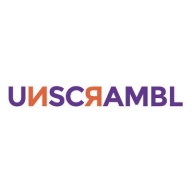

Tableau Enterprise and QBO compete in the software solutions category. Tableau Enterprise holds an advantage with advanced visualization capabilities suitable for complex data analysis, while QBO provides straightforward solutions for accounting purposes.
Features: Tableau Enterprise enhances data visualization with intricate graphical representations and allows effortless integration with various data sources. Users benefit from creating interactive, flexible reports with built-in drill-down capabilities, making data exploration comprehensive. The solution's design supports rapid data visualization and problem-solving for business users. In contrast, QBO focuses on financial and accounting tasks, offering order processing, automated payment scheduling, and sales management capabilities, praised for their simplicity.
Room for Improvement: Tableau Enterprise could be elevated by incorporating more advanced ETL functionalities, better collaboration features, and improved performance with complex datasets. It faces challenges with handling extensive hierarchical data. QBO's user experience would benefit from comprehensive keyboard shortcuts and enhanced inventory management features, optimizing usability in financial tasks.
Ease of Deployment and Customer Service: Tableau Enterprise offers versatile deployment options, including on-premises, private cloud, and hybrid cloud solutions, catering to different organizational needs. While customer service is praised for its responsiveness, some variability exists based on technical issues. QBO uses a public cloud model, simplifying deployment especially for less complex user needs, and its support receives positive feedback for forum resources and training, though application support might improve.
Pricing and ROI: Tableau Enterprise's pricing includes a high-cost structure with per-user and core-based licenses, often justified by its ROI in enhancing data utilization and reducing manual efforts. Smaller enterprises might find costs restrictive. QBO is also considered costly relative to its offered functionality, especially for additional services like payroll, but users often outweigh the cost considering long-term value from its comprehensive features.
| Product | Market Share (%) |
|---|---|
| Tableau Enterprise | 6.7% |
| QBO | 0.6% |
| Other | 92.7% |


| Company Size | Count |
|---|---|
| Small Business | 117 |
| Midsize Enterprise | 67 |
| Large Enterprise | 184 |
QBO combines the power of natural language and spontaneous collaboration to deliver on-demand insights to the decision-makers. Winning features of QBO: 1. Easily connect to multiple internal and external datasets 2. Slice-and-diced data in infinite ways using natural language (English) and interactive visualizations 3. Responds easily to descriptive, diagnostic, predictive and prescriptive questions 4. Native integration with Microsoft Teams 5. Save and share your findings easily on interactive boards URL of the product : https://www.unscrambl.com/qbo-insights/ Powered by Unscrambl, we believe that our increasingly complex world of data can be simplified and transformed into actionable insights, saving valuable time and resources for every business. Unscrambl develops next-generation conversational analytics software that gives business users the power to access and consume data instantly and collaboratively. Unscrambl is headquartered in the United States and has offices in Singapore, Turkey, India, and the Philippines. For more information, please visit www.unscrambl.com
Tableau Enterprise offers powerful features for creating interactive visualizations, dashboards, and maps, including drag-and-drop functionality and easy integration with multiple data sources, promoting real-time collaboration and self-service analysis.
Tableau Enterprise stands out with its ability to create user-friendly, interactive visualizations, making it pivotal for business intelligence applications. Users benefit from its seamless connectivity and advanced analytical functions, facilitating data blending and storytelling. Despite a complex learning curve and high licensing costs, its features like geospatial analysis and efficient content distribution drive its indispensable value for data-driven insights. Enhancements in predictive analytics and support integration with machine learning tools further its capabilities across industries.
What are the most valuable features?Tableau Enterprise is widely used for business intelligence, supporting industries like healthcare, telecommunications, and finance. Organizations utilize it to analyze performance indicators, operational insights, and financial analytics, enhancing decision-making through interactive reports and real-time data integration.
We monitor all BI (Business Intelligence) Tools reviews to prevent fraudulent reviews and keep review quality high. We do not post reviews by company employees or direct competitors. We validate each review for authenticity via cross-reference with LinkedIn, and personal follow-up with the reviewer when necessary.